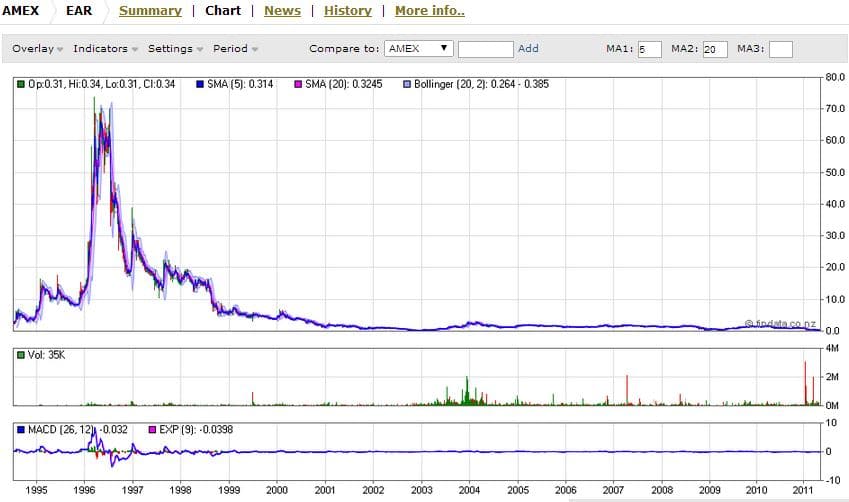“The Past, Present and Future walked into a bar. It was tense.” time warp in a bar
Hearing Economics hit its stride by writing a 21-post series involving Siemens back in the good old HearUSA days of 2011. You’d think that would be enough, but stray remnants kept trickling in, getting buried on the desk, cluttering up the place.
Not for the first time, Siemens announced this month its intention to depart Audiology for a better life. Time for a sentimental journey as Hearing Economics unearths Siemens and HearUSA for one more round by digging through desk detrita.
Then: How HearUSA Became Siemens
“So what do you think? Should HearUSA be untied from the railroad track, or would it be better off getting run over by the train? The debt is terrifying, as is the precarious nature of goodwill value and the omnipresent, rapacious Central Office. On the other hand, the valiant clinics and the big network look good. Maybe it’s worth saving if you can get it away from West Palm Beach? ”
That was the situation in spring of 2011 after Siemens called in its many loans and started the stock ball rolling downward in mid January (Fig 1). Here’s how it’s gone down since then:
- May 16 2011: HearUSA filed for Chapter 11 bankruptcy.
- June 2011: Official Committee of Equity Security Holders appointed. Somewhere lost on my desk is a fox in the hen house note that Dr Brown was inextricably linked to the settlement by serving in some official capacity to overseeing the demise{{1}}[[1]] Not unlike Jamie Dimon’s arrangement in the JP Morgan vs US Government settlement, perhaps?[[1]], but I can’t find the substantiating link.
- July 29-Aug 1, 2011: Bankruptcy auction and approval. Audiology Distribution, LLC (an affiliate of Siemens) purchased HearUSA’s name and operations, along with releases of claims by and against Siemens. Total cost: $129.3M. Not included: claims by disgruntled shareholders.
- Aug 13 2011: The company-formerly-known-as-HearUSA (Amex symbol EAR) becomes HUSA Liquidating Corporation. Security deletion update on the OTCBB.{{2}}[[2]]The OTC Bulletin Board is a United States quotation medium for subscribing members used for many over-the-counter (OTC) equity securities that are not listed on the NASDAQ or a national stock exchange.[[2]] as the stock begins trading on the Pink Sheets (symbol HEARQ.PK)
- Jan 18, 2012: Class action suit filed in New Jersey federal court by former stockholders,{{3}}[[3]]Case title MTB Investment Partners, LP v Siemens Hearing Instruments Inc. Case # 2:12-cv-00340, filed 1/17/2012[[3]] claiming Siemens perpetrated a fraud by pretending it didn’t want HearUSA so the stock would plunge, after which Siemens revealed its true intentions by scarfing up HearUSA at a rock bottom price. Siemens protests that it wasn’t pretending, that HearUSA was mismanaged and had only itself to blame.
- June 7 2012: Bankruptcy plan effected. The company is dissolved, shares of common stock extinguished. Everything left (mainly cash from the sale) is put in a liquidating trust from which shareholders receive approximately $0.97/share — 7 cents higher than HearUSA’s share price on January 18, 2011.
- 9/26/2013: stockholder class action suit settled. Dismissed without prejudice and without costs; parties had 90 days to finalize; “terms of the deal not immediately available” and I still don’t have them at the time of writing.
In the end, HearUSA became a subsidiary of Siemens in what to all appearances looked like a shot gun wedding in which Siemens paid a pretty penny to get saddled with HearUSA and silence shareholder outrage.
A Words or Two About Shareholders
You can get a feel for the outrage by checking out the court docket for the last 1/2 of September 2011. Pretty much everyone on earth signed up with an attorney and filed something.
In the end, at 97 cents/share, some short term investors may actually have made a penny or seven.
Long term investors probably lost more than pennies, but what were they expecting (see Fig 2)? As one Commenter at HearingHealthMatters noted:
Some investors seem to be complaining about being hung with a new rope. Given that this chain has never made money, except for its officers, these “aggrieved” stockholders are lucky they got what they did.
Here’s something from one “Hubert Katz, Bowie, Md” for whom my messy desk refuses to provide a source link:
“I was an early buyer of stock in HearX when they started out in the 80s. Stayed with them when they had the 1 for 10 reverse. Just found out the other day when my broker notified me of an under $300.00 to my account that I was bought out with no previous notice. I’ve lost a number of thousands of dollars that I gave to Dr. Brown when he needed it. A very nice way to treat stockholders who were told over the years that there were no profits. One of the people who helped him raise money for his company, Jerry Wenger, even ended up with a stint in jail. I lose money and Dr. Brown will come out smelling like a rose.”
Too bad Hubert hung out with Dr Brown instead of George Soros, who may be the only HearX investor who came out smelling like a rose. Mr. Soros bought 2.8 million shares of Hearx on February 5, 1996 and sold them on May/4/1996. A quick look at the time line of Figure 2 says that if he bought around $10/share and sold around $60-70/share he cleared as much as $150M in three months. It makes you wonder what Mr. Soros knew that Hubert and the rest of us didn’t.
Speaking of those in and out of the know, check out this hilarious thread of 140 posts by day traders at investorshub during the spring and summer of 2011. No doubt they bought and then joined the group of outraged stockholders in the class action suit. Here’s an excerpt of those exchanges to give you a flavor of their thinking and why they are not George Soros. The exchange took place on August 1, 2011, just after the auction was approved.
- Around the Clock: Can you simplify why HEARQ went up today? Also how did you find out about it — was it through their filings?
- Wall Street61: auction results.
- AtC: Can you please send me the link to the auction results I did not find anything anywhere.
- WS61: That’s because there’s not any
- AtC: Damn that sucks. Missed out. How do you do research for bankruptcy plays? Any great websites?
- WS61: You have to jump in the sewer and sort through countless hours of legal bloviation and take your best guess on an unsure outcome.
- AtC: sounds good.
Poor Siemens, who can blame it for wanting to distance itself from such folks? I’m surprised they didn’t file a restraining order in the docket.
Now and the Future
Time and space demand that the future be postponed a week or two. As of Now, readers may be reassured or dismayed to learn that HearUSA exists but never got far from West Palm Beach. It’s website lists the corporation office location in Palm Beach Gardens, Florida.
As for Siemens itself, you can see why it wants to get out and move on. David Kirkwood’s post today reports an analyst’s view that Siemens is most at risk of the Big 6 in the US market. She points to Rexton’s decline of 65 to 47% in the Costco market in just one year and expects that downward trend to continue, in good part due to last months Phonak-Costo liasing.
The future of hearing aids will not be Siemens but Phonak is doing well in the Now. Beda Diethelm, who owns 10% of the stock in Phonak’s parent company Sonova Holding, became a billionaire on March 26, 2014, after Sonova’s stock rose 5.2% in the previous six days. The Phonak-Costco deal commenced April 1, 2014. Does George Soros know about this?
feature image courtesy of business insider










Once again you hammered the nail Perfectly. It was obvious from the very beginning the whole enterprise (HearUSA) was set up to benefit one person, and a few others who also did good. Feel badly about Siemens, but they have always been a tiny tail on a very large dog.